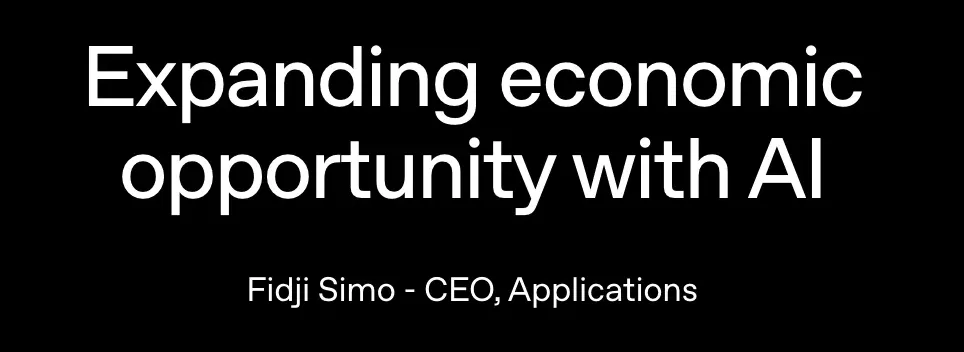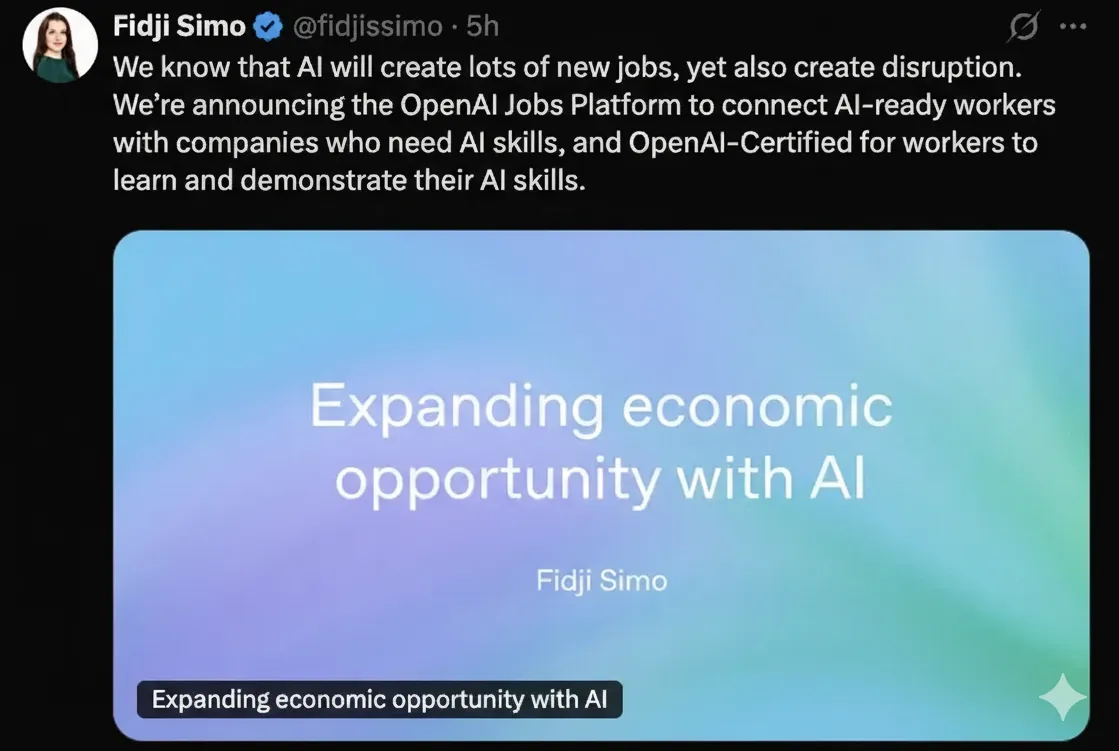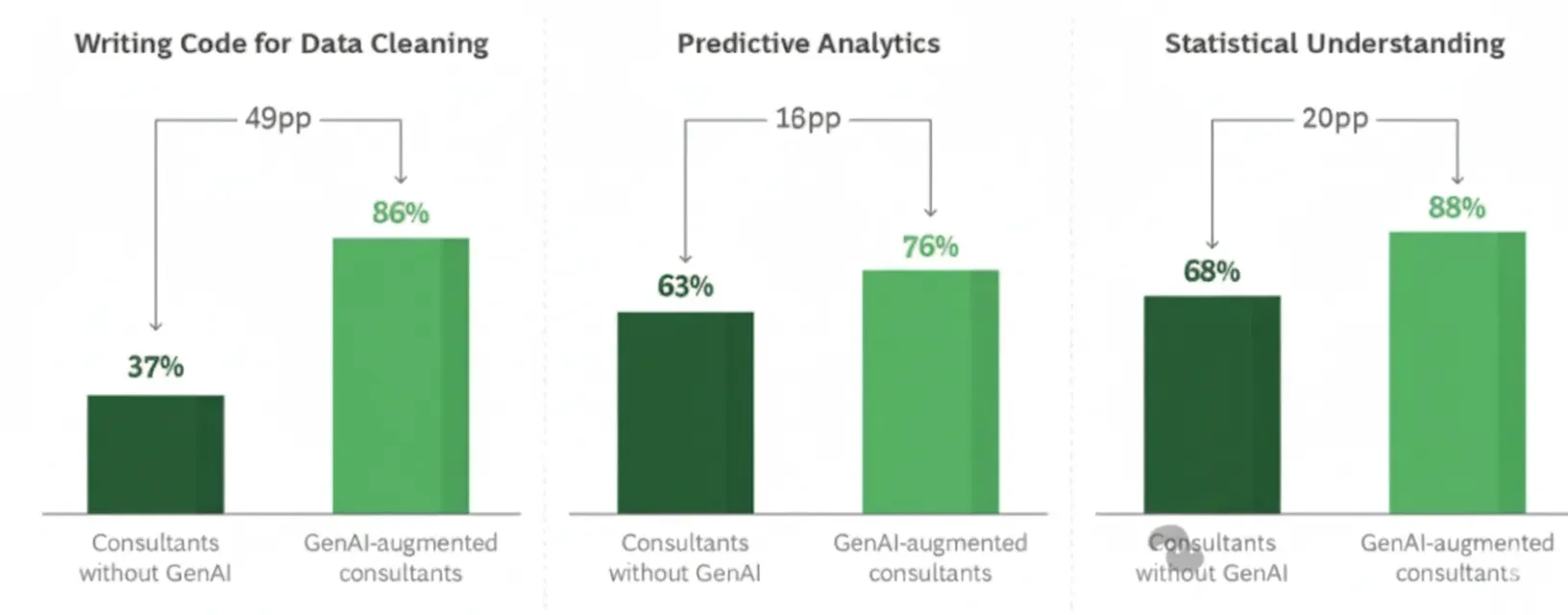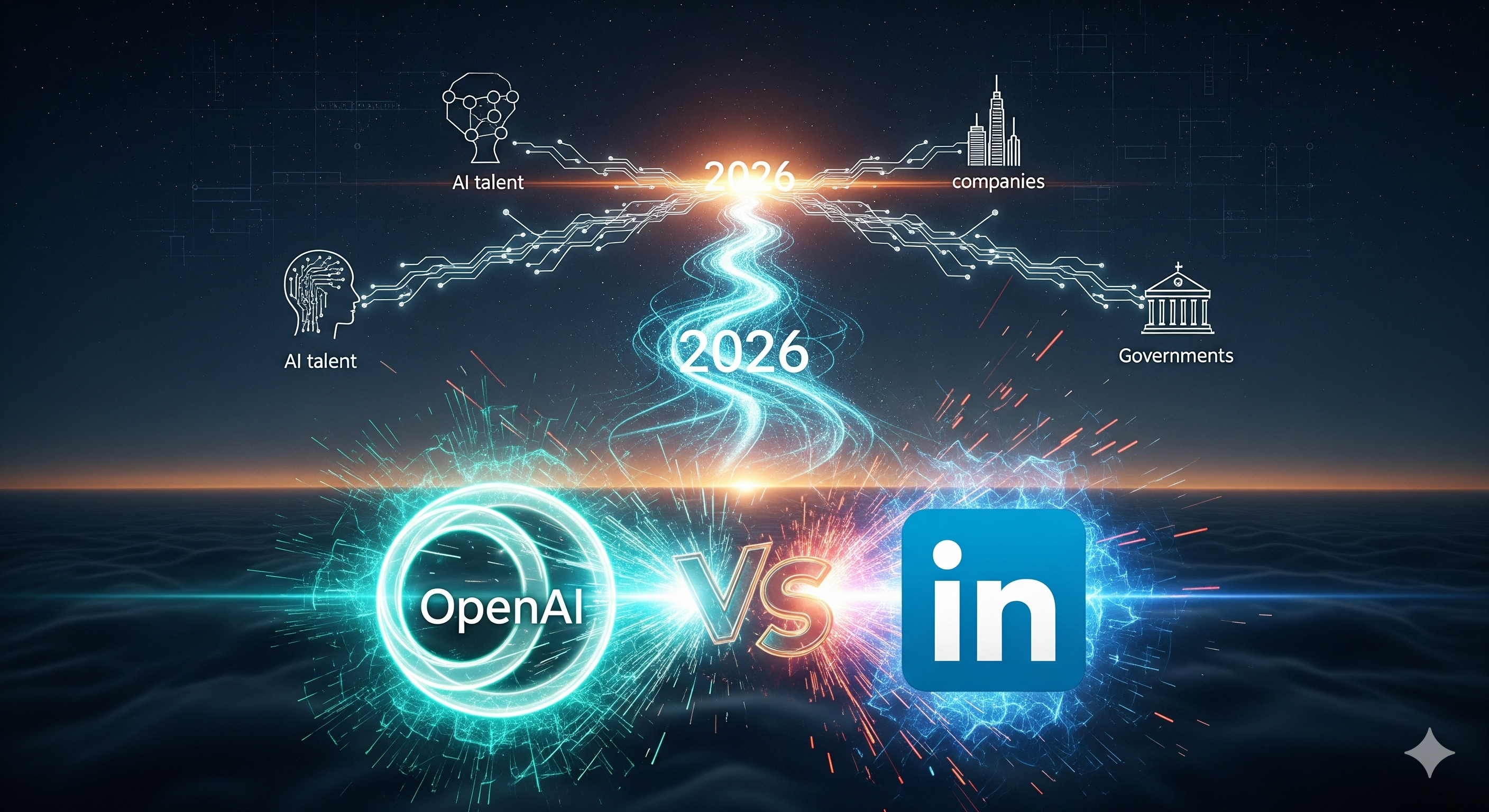OpenAI has officially entered the recruitment battlefield, challenging Microsoft-owned LinkedIn with its upcoming AI-powered hiring platform — OpenAI Jobs Platform, planned for launch in 2026.
At its core, the platform aims to harness artificial intelligence to seamlessly match company needs with candidate skills, creating a new model for talent acquisition.

A New Gateway to AI Talent
OpenAI has appointed Fidji Simo as the CEO of its new applications division. According to Simo, the platform will serve as a dedicated channel connecting small businesses and local governments with world-class AI talent.
As the announcement spread, online commentators jokingly noted: “OpenAI is taking over the world.”

More Than Jobs: Expanding Economic Opportunities
While fears of AI replacing human jobs remain widespread, Simo is optimistic:
“Artificial intelligence will generate more opportunities than any technology in history.”
AI, he argues, won’t just make companies more efficient. It will enable individuals to turn creativity into income and generate entirely new categories of work that don’t yet exist.

This philosophy underpins the launch of OpenAI Jobs Platform: to help more people learn AI skills and connect them with companies that need those skills, ultimately broadening employment opportunities.
But the most striking aspect is its competitive target. LinkedIn—co-founded by Reid Hoffman, an early OpenAI investor—is now fully owned by Microsoft, OpenAI’s largest backer. That means OpenAI’s move could put it in direct competition with its most important partner.
Building an AI-Driven Hiring Ecosystem
OpenAI stresses that access to AI is the first step toward mastering it. That’s why most of ChatGPT’s hundreds of millions of weekly users are free users. The vision: ensure as many people as possible learn how to leverage AI to boost productivity, shape the world, and take control of their futures.
To scale this mission, OpenAI is partnering with a broad range of organizations, including:
- Large employers: Walmart, John Deere
- Professional services firms: Boston Consulting Group, Accenture
- Recruitment platforms: Indeed
- Community and trade groups: Texas Association of Business, Bay Area Council
- Government institutions: Office of the Governor of Delaware
Through these partnerships, OpenAI Jobs Platform will offer a wide pool of skilled candidates at all levels and leverage AI to optimize employer-candidate matches.
Importantly, the platform won’t just serve Fortune 500 companies. It will also provide specialized sections for local businesses and government agencies, enabling them to access AI talent and stay competitive.
For instance, the Texas Association of Business plans to use the platform to connect thousands of Texas-based companies with talent who can modernize operations and fuel regional growth.
Helping People Master AI
Research shows employees with AI skills are more valuable, more productive, and better compensated than those without.
That’s why earlier this year, OpenAI launched OpenAI Academy—a free online learning platform that has already helped over 2 million people gain access to AI tools, workshops, and community resources.

Next, OpenAI will expand the Academy to include certification programs for different levels of AI proficiency:
- Foundational skills for using AI at work
- Advanced roles like AI customization
- Specialized training in prompt engineering
Learners can train with AI through ChatGPT’s learning mode, prepare for certification, and complete assessments directly in-app. Employers will also be able to integrate these certifications into their workforce development plans.
Looking ahead, OpenAI and its partners—including Walmart—plan to certify 10 million Americans with AI skills by 2030.
John Furner, CEO of Walmart U.S., emphasized:
“The future of retail isn’t defined by technology alone—it’s defined by people who know how to use it. By providing direct AI training to our associates, we’re putting the era’s most powerful tool in their hands and giving them the skills to shape the future of retail.”
The Bigger Picture
AI is rapidly reshaping how we work and live. Those who master AI early will unlock more opportunities and new possibilities across industries.
But with OpenAI and Microsoft now seemingly on a collision course in the recruitment space, one question remains:
Who will win the future of AI-powered hiring—OpenAI or LinkedIn?
